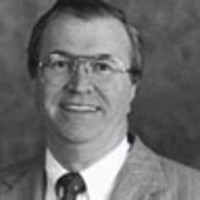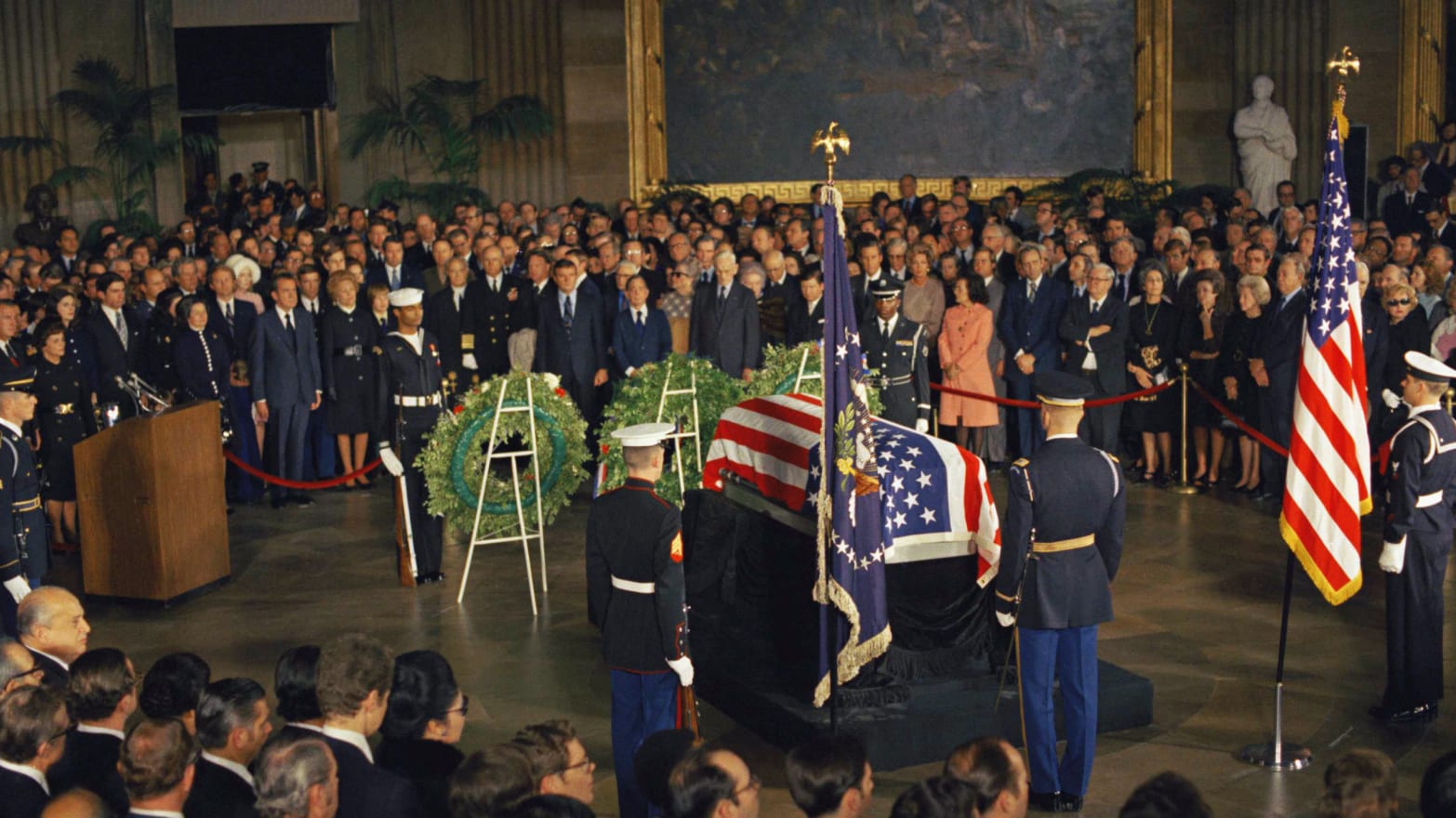January 22, 1973.
A very sad day for me, for Mrs. LBJ, Lynda and Luci—along with so many others who loved LBJ and who were loved by him.
Mrs. LBJ called me. She said in a solemn yet steady voice: "Tom, we did not make it this time. Lyndon is dead. Please make the announcement and handle the arrangements." (I have notes of that call.) He died at the LBJ Ranch of a heart attack. Secret Service agents Ed Nowland and Harry Harris unsuccessfully tried to revive him.
With the incredible assistance of a special office in the Pentagon and the Secret Service, most all of the ceremonial funeral details had been decided earlier by LBJ and Mrs. LBJ. Speakers had been chosen. Gen. James Cross, White House military aide to LBJ, was chosen to escort Mrs. Johnson. LBJ was to lie in state first at the LBJ Library, then in the rotunda of the U.S. Capitol, and then burial was to be in the family cemetery at the ranch.
President Nixon called me. Offered fullest support of the White House, including Air Force One. Bob Haldeman, Dwight Chapin, and Larry Higby of the Nixon White House were on the phone with me regularly. Every single request was honored.
I never will forget that remarkable show of thoughtfulness by the Nixon team, especially the president himself.
I followed all the pre-set procedures. I called AP and UPI first in their Austin bureaus. They insisted on a call back from them to me before flashing the bulletin. (There had been several prior hoaxes.)
I called ABC, CBS, and NBC in that order. Read brief announcement. Walter Cronkite took my call immediately to air on CBS evening news, the first live interruption of his show in history, he later told me. (I do not know if that is true.) He interviewed me by phone.
The AP flash came into the CBS Newsroom about 30 seconds before my interview with Cronkite ended. Later, I was told there was a huge sigh of relief by the Cronkite producers because they too feared a hoax. But, Walter knew my voice. We had worked together several times, especially on a televised series, "Conversations with the Former President," at the ranch. CBS got a huge news break as a result—ahead of all the world.
For the next three days, I did exactly what The Plan (called Project X in my files) dictated. I reported only to Mrs. LBJ. She and I had a flawless, totally smooth situation amid the crisis of LBJ's unexpected death. Neal Spelce, a former KTBC news anchor and news executive, helped me 24/7 in Austin.
The graveside services at the LBJ Ranch were the coldest I ever experienced. It was well below freezing.
LBJ left exactly as he would have wished—with absolutely no advance notice to the press.
I often think how his mastery of politics, especially his willingness to reach across the aisle and his willingness to compromise, should serve as the way toward a far more united and functional government today.

